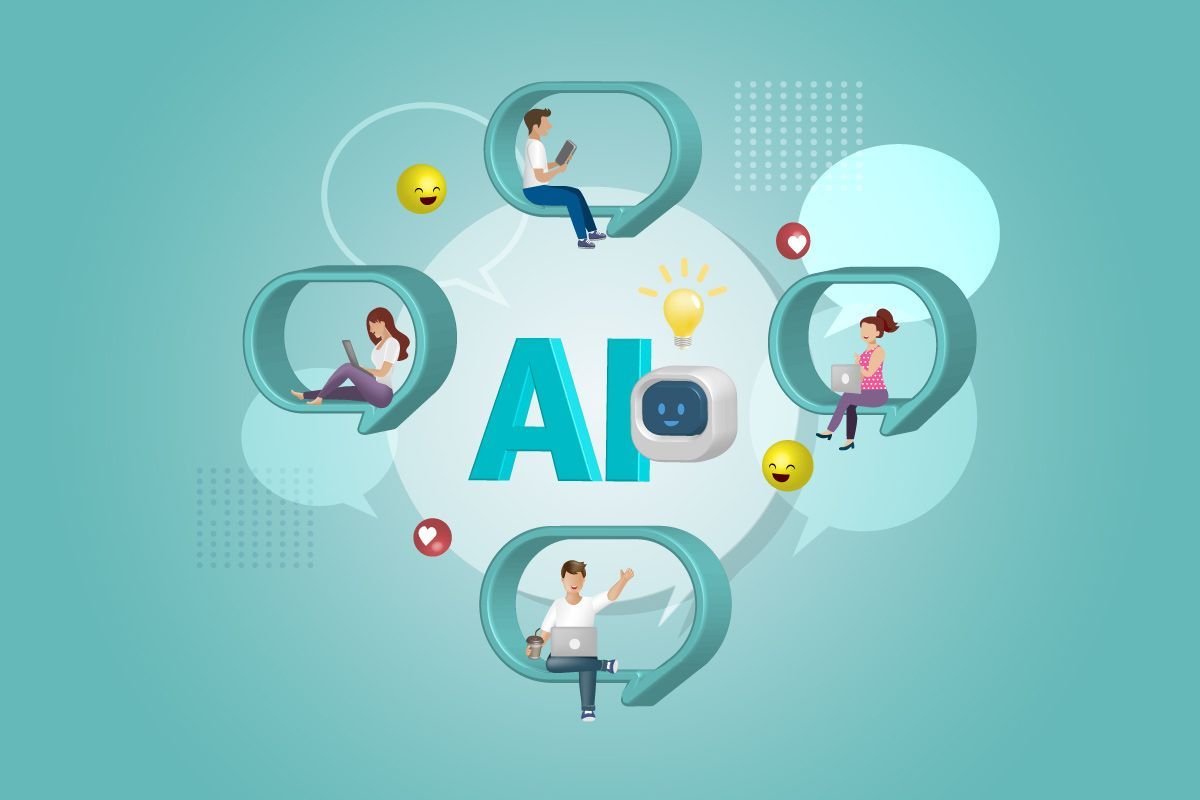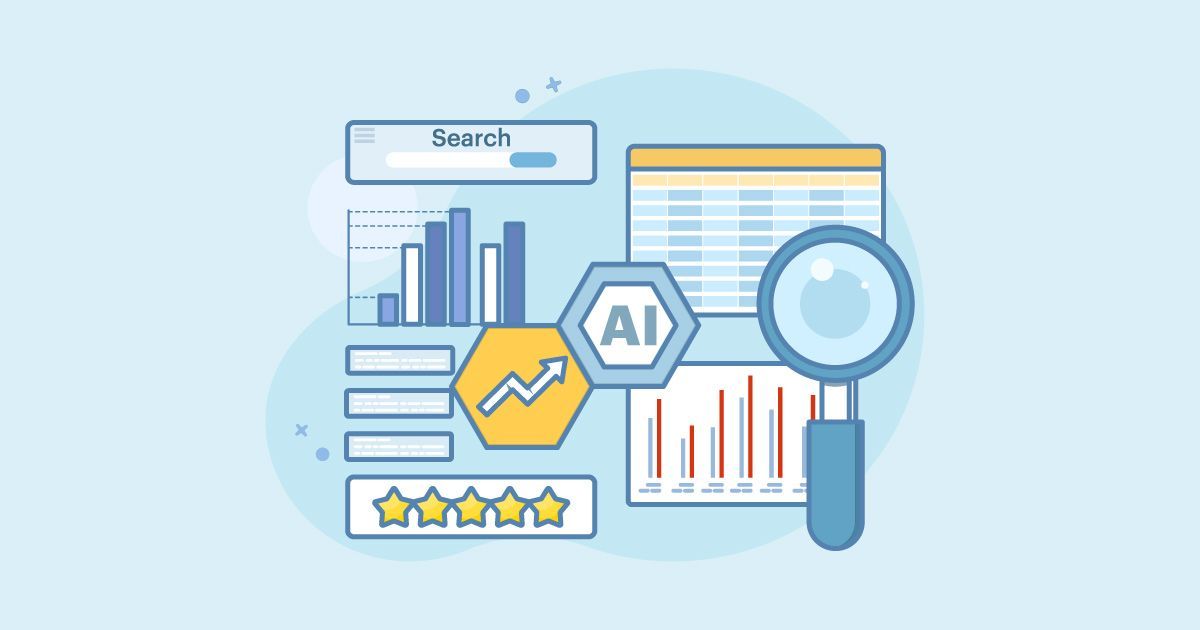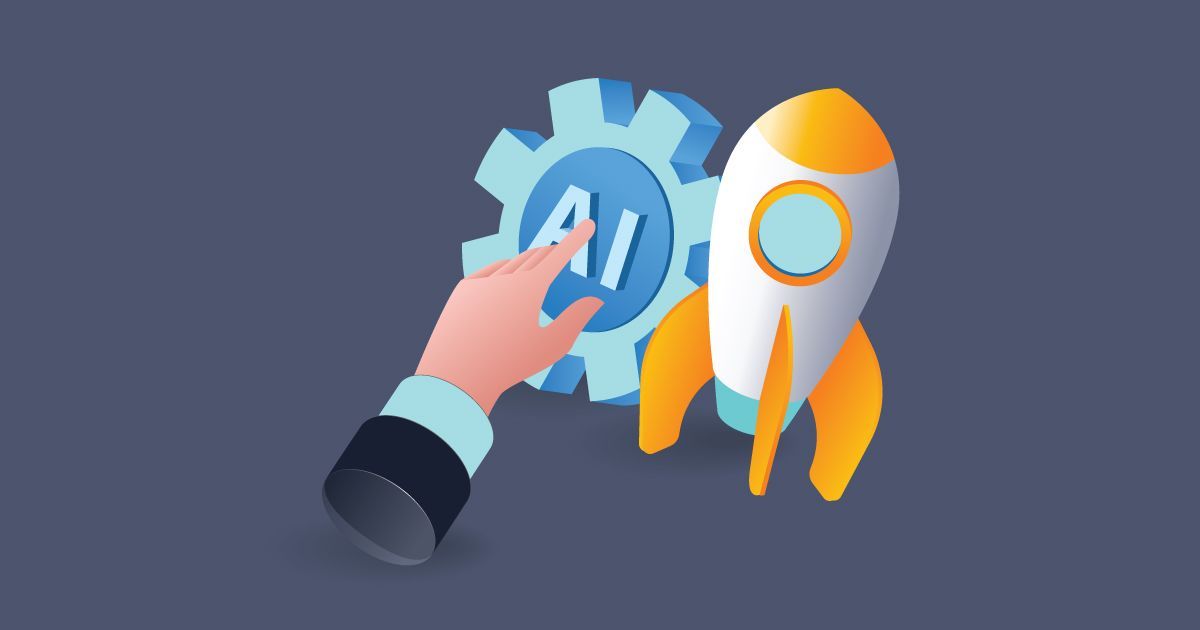Which Delivers Better SEO Results - AI or Human Written Content?
Choosing Between AI and Humans: Who Writes Content That Generates More Traffic to Your Website?
In a world increasingly driven by digital interactions, the content we produce plays a pivotal role in determining online success. As businesses strive to capture audience attention, the debate over whether to employ AI-generated or human-written content has come to the forefront. Both options offer unique advantages and challenges, leaving many to wonder which truly delivers better SEO results.
AI-generated content has emerged as a powerful tool that boasts speed, scalability, and consistency to accelerate content production. On the other hand, human-written content is famed for its emotional depth, creativity, and nuanced storytelling that can foster deeper connections with readers. Understanding these differences is crucial in navigating the content landscape.
This article lists the strengths and limitations of AI and human content, comparing their performances in SEO metrics. By examining these elements, we aim to provide clarity in choosing the best approach for achieving optimal online visibility and engagement.
What is AI-generated content?
AI-generated content is created by machines using artificial intelligence technology. This type of content uses algorithms and data to produce text that mimics human writing. It’s becoming popular in the field of content creation for search engine optimization (SEO).
AI-generated content refers to text produced by sophisticated algorithms. These algorithms analyze large datasets and generate content based on patterns found within these data. The content creation process involves minimal human intervention, allowing for faster production of articles, blog posts, and other written materials. Unlike human-written content, AI aims for scalability and rapid deployment.
What is human-written content?
Human-written content refers to articles, blog posts, or any form of writing crafted by a human being. It involves a person using their knowledge, creativity, and unique perspective to create a piece of content. Human content writers bring a personal touch and a deeper level of understanding to their work. This type of content is created through a thoughtful content creation process, often tailored to a target audience. It is designed to engage and connect on a human level, leading to improved user experience and organic traffic.
Is AI-generated content better for SEO than human-written content?
Several studies and experiments have been conducted to compare the performance of human-written versus AI-generated content for SEO purposes. Here are some notable findings based on the information available:
Reboot Online's SEO Experiment
This study involved setting up a controlled environment with test websites where AI-generated content was compared directly with human-written content. The results indicated that, with all else being equal, human-written content tended to perform better in search engine rankings. This was observed over a period of three months, suggesting that at least in the short term, human content had an edge in SEO performance.
Neil Patel's Experiment
Over a 12-month period, Neil Patel and his team conducted an experiment involving 68 websites and 744 articles, split evenly between AI and human-generated content. The findings from this study, shared on social media, showed that human-generated content attracted more SEO traffic compared to AI-generated content. Even when AI content was edited by humans, human-written articles generally performed better in terms of SEO.
MIT Study
An MIT study, although not exclusively focused on SEO, compared the quality of AI-generated content versus human-written content in various contexts. The study found that human readers preferred AI-generated content in certain controlled settings, but this did not directly correlate with SEO performance. However, it's implied from broader discussions that human content's ability to engage readers on a personal level might contribute to better SEO outcomes, especially in terms of engagement metrics like dwell time.
These studies collectively suggest that while AI can generate content quickly and at scale, human-written content often provides better SEO results due to its ability to engage readers with unique insights, creativity, and relevance.
What are the advantages of AI-generated content?
AI-generated content offers several benefits that make it an attractive option for content creators and marketers. From saving time to ensuring uniformity, these advantages help streamline the content creation process.
Quick and efficient content creation
One of the main benefits of AI-generated content is the speed at which it can produce a piece of content. Unlike human writers, AI can quickly scan vast amounts of information, synthesize it, and deliver coherent blog posts in minutes. This efficiency is invaluable for companies needing rapid turnaround times to keep up with the fast-paced digital world.
Scalable for large volumes of content
For businesses looking to generate a large volume of content, AI provides a scalable solution. AI content generators can consistently produce countless articles, allowing companies to populate their websites with minimal effort. This ability to scale content creation helps maintain an active online presence, which is crucial for attracting organic traffic.
Consistent tone and style
AI systems can be programmed to maintain a consistent tone and style across various pieces of content. This uniformity helps establish a brand's voice and ensures that all pieces resonate with the target audience. Consistent messaging is key for effective brand communication and enhances the overall search engine optimization (SEO) strategy by enabling a cohesive user experience.
By leveraging these features, AI-generated content optimizes the content marketing strategy, allowing businesses to focus more on strategic planning and less on the writing process.
What are the limitations of AI-generated content?
As AI continues to play a key role in content creation, it's essential to understand its limitations. AI-generated content can streamline the writing process, but it often falls short in several areas compared to human-written content. Here are some top limitations:
Lack of emotional depth and storytelling abilities
AI-generated content typically lacks the emotional depth, storytelling, empathy, and personal touch that human writers naturally provide. While AI excels at data processing and keyword generation, it fails to weave emotions into narratives, connect through personal experiences, or engage audiences on a personal level. This human element is crucial for making local content resonate with community-focused businesses.
Potential for lower engagement rates
Another limitation of AI-generated content is its potential for lower engagement rates. The SEO community values content that attracts organic traffic and boosts search rankings. Content that is rich in human experience and empathy tends to perform better. Users often prefer human-written articles as they provide a better user experience. AI content creators may produce text quickly, but without the human intervention of a content creator, it may not resonate with the audience, leading to lower engagement rates.AI can occasionally produce content with factual inaccuracies or outdated information, particularly if its data sets are not continually updated with local specifics. For local companies, accuracy in describing local services, products, or community initiatives is crucial for maintaining trust and credibility.
Quality control, fact-checking, and accuracy issues
Quality control and accuracy are also concerns with AI-generated content. Machines can generate text swiftly, but human content writers are crucial for ensuring originality and accuracy. AI can occasionally produce content with factual inaccuracies or outdated information, particularly if its data sets are not continually updated with local specifics. For local companies, accuracy in describing local services, products, or community initiatives is crucial for maintaining trust and credibility. Thus, human intervention becomes essential for maintaining the integrity of blog posts or any piece of content.
What are the advantages of human-written content
In the world of SEO, the debate between AI-generated content and human-written content is ongoing. While AI has its benefits, human writers still hold significant advantages. Here, we explore why human-created content can have a superior impact.
Emotional resonance and connection with readers
Human writers have the unique ability to connect with readers on an emotional level. They can inject personal touch and human experience into their writing. This helps to create content that resonates with the emotions of the audience. Unlike AI, human content writers can feel and express emotions, making it easier to forge a deeper connection with readers. This emotional bond can lead to higher engagement and loyalty.
Creative storytelling and nuance
Human-written content shines in creative storytelling. Human writers bring a level of creativity and nuance that AI-generated content often lacks. They can weave stories that captivate and entertain. This creativity is not only engaging but also helps retain readers longer, which is beneficial for user experience and search rankings. They are also adept at infusing content with humor, irony, and subtlety, which can enrich a piece of content in ways AI cannot replicate.
AI tools cannot often fully understand and incorporate local cultural nuances, idioms, or specific community behaviors which are crucial for resonating with a local audience. This can lead to content that feels out of touch or insensitive to local customs or events.
AI might not accurately reflect or update content with local happenings, news, or changes in local business landscapes unless specifically programmed with such data. This can result in generic content that doesn't engage local customers effectively.
Higher potential for original content and insights
Human writers can provide original insights and perspectives drawn from their experiences and observations. They can offer fresh takes on topics, adding value that goes beyond mere facts. Unlike AI, which relies on existing data, human writers can introduce new ideas and thoughts. This originality is key to creating high-quality content that stands out, attracts organic traffic, and enhances the credibility of the content creators.
Better understanding of SEO and search intent
While AI can optimize content for SEO, understanding the nuanced search intent of local consumers might be challenging. Local SEO requires a deep understanding of local queries, which might include colloquial terms or specific local landmarks that AI might not interpret correctly.
Ability to be personalized and customized
For local businesses, content often needs to be highly personalized to reflect the community's needs, preferences, or current local issues. AI's capability for personalization is limited unless fed with extensive and specific local data.
Ethical and regulatory compliance
AI might not be adept at navigating the complex web of local laws, regulations, or ethical considerations that might affect content, like promotional regulations or cultural sensitivities. Human oversight is necessary to ensure compliance.
Consistency of brand voice for local businesses
Maintaining a consistent brand voice that aligns with the local community's perception of the business can be challenging for AI. AI might produce content that feels off-brand or doesn't align with the company's established local identity.
Dealing with local competition
Understanding local competition dynamics, including subtle business practices or marketing strategies, requires a nuanced approach that AI might not fully capture. Human insight into local market trends and competitor analysis can significantly enhance content strategy.
Community building
Effective local marketing often involves building a community around the brand. AI content might lack the authenticity needed to foster genuine community engagement, which is vital for small businesses relying on local patronage.
What are the limitations of human-written content?
Human-written content has long been the gold standard in content creation. However, it comes with certain challenges that AI-generated content aims to address. Let's explore some of these limitations.
Slow production rates
One major limitation of human-generated content is its slower production rate. Human writers need time to research, draft, and revise each piece of content. This process can take days or even weeks, depending on the complexity of the topic. AI-generated content, by contrast, can produce articles in minutes.
More expensive
Hiring skilled human writers can be costly. Professional writers charge for their time and expertise, which increases the cost for businesses needing regular content. Unlike content generators, humans don't work for free or at any time of day. This makes AI-generated content a more budget-friendly option for many companies.
Variable quality and style
Human-created content is inherently variable in quality and style. Each writer brings their unique voice and experience to the table. While this can add a personal touch, it also means that content consistency can be hard to maintain. Inconsistent tone and style may not always suit the target audience or improve search rankings. In contrast, AI-generated content can offer more uniformity across different pieces of content.
In summary, though human-written articles have their strengths, they also face limitations in production speed, cost, and consistency. Balancing these factors is crucial in today’s content marketing landscape.
SEO Performance Analysis and AI Content
In the SEO landscape, both AI-generated and human-written content vie for higher search rankings, each with its unique strengths. AI content is gaining traction, yet human content writers bring a personal touch that resonates more deeply with the target audience, making content more engaging and relatable.
Ranking and Engagement
A 2024 case study revealed that human-written content outperforms AI-generated content in critical SEO metrics like readability, semantic coherence, and sentiment consistency. The human-written blog scored 27.8% higher on the Flesch Reading Ease scale and had a 28% better semantic coherence score. Moreover, human articles showed higher audience retention, which might contribute to improved SEO rankings over time.
https://neilpatel.com/blog/ai-vs-human-content/
Note for Olympia Get stats from this article and
Google's Perspective
Post the March 2024 Core Update, Google's view on AI content has evolved. Poor-quality or non-engaging AI content might negatively affect rankings. However, when AI content is well-optimized, valuable, and original, it can coexist without harming SEO. The focus should be on quality and value.
Content Quality and Originality
Despite AI's speed in content creation, human content often excels in quality, originality, and the human touch. These elements enhance readability and user engagement due to the nuanced grasp of context, tone, and audience needs.
Keyword Relevance and Optimization
Effective SEO hinges on keyword research where human writers excel by selecting relevant keywords that resonate with readers and satisfy search engines. They understand audience search behavior, integrating keywords naturally. AI can identify keywords but struggles with their seamless incorporation; humans ensure they fit well within the narrative, avoiding keyword stuffing.
Adherence to Google's E-E-A-T Standards
What is Google's E-E-A-T standard? It is the focus on expertise, experience, authoritativeness, and trustworthiness. Human-written content usually scores higher in these areas. Adding human intervention to AI content can help meet these standards. AI may generate information quickly, but human content writers ensure the content resonates with a deeper level of expertise and personal touch, promoting a better user experience.
Content Structure and Readability
The structure and readability of content affect search engine rankings. AI-generated articles can follow basic formats well. However, the writing process often lacks the creativity seen in human writing. Human content creation shines with varied sentence structures and a personal touch, enhancing readability. For high-quality content, ensuring that AI content matches this human-experience standard is essential.
Engagement and Bounce Rates
Human articles engage better, reducing bounce rates by connecting emotionally with readers through storytelling, a friendly tone, and insightful content. This engagement leads to a better user experience, keeping visitors on the page longer.
Quality of Backlinks Generated
Human content tends to attract higher-quality backlinks due to its originality and depth. It fosters strong connections with influencers, establishes thought leadership, and naturally builds links, all of which are less common with AI content due to its lack of personal experience.
Can Search Engines tell the difference between AI-generated content and human-generated content?
Search engines, particularly Google, have developed mechanisms to distinguish between AI-generated and human-generated content, though this differentiation can be complex and nuanced. As AI writing tools become more advanced, particularly with models like GPT-4, the line between AI and human content blurs. These models can produce highly coherent and contextually relevant content that's hard to distinguish from human writing without deep analysis. Read our article on
How to create useful people-first content for web pages and blogs
For optimal SEO outcomes, including local SEO, The best approach for content creators is to use AI as a tool to enhance, not replace, human creativity, ensuring content remains high-quality, engaging, and genuinely useful to users. AI speeds up content creation, but the human touch adds strategic depth, and local knowledge is crucial for engaging and original content that ranks well in both organic and local searches. Using AI as a tool, not a substitute, allows businesses to craft content that resonates locally while maintaining global relevance, ensuring a strong, adaptive SEO strategy amidst digital evolution.




